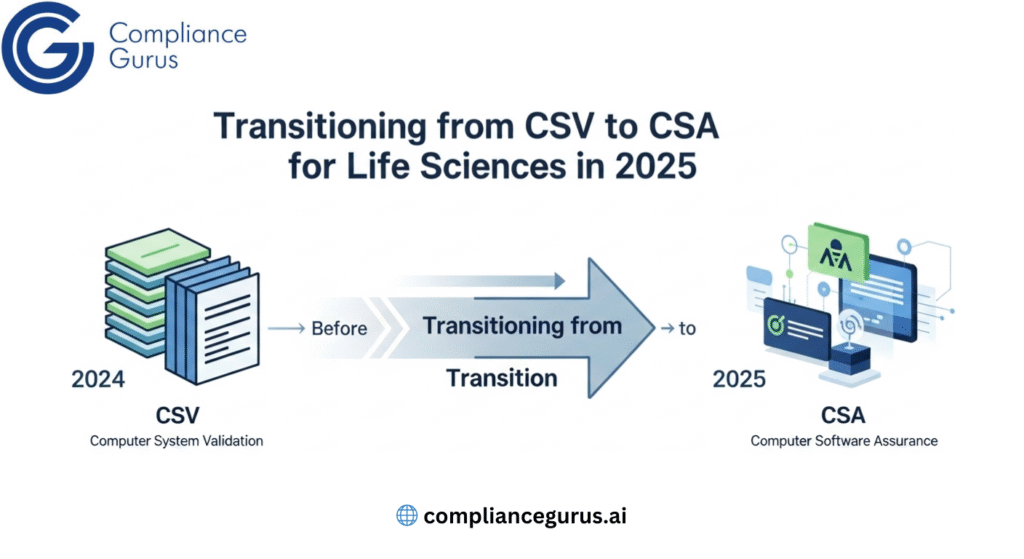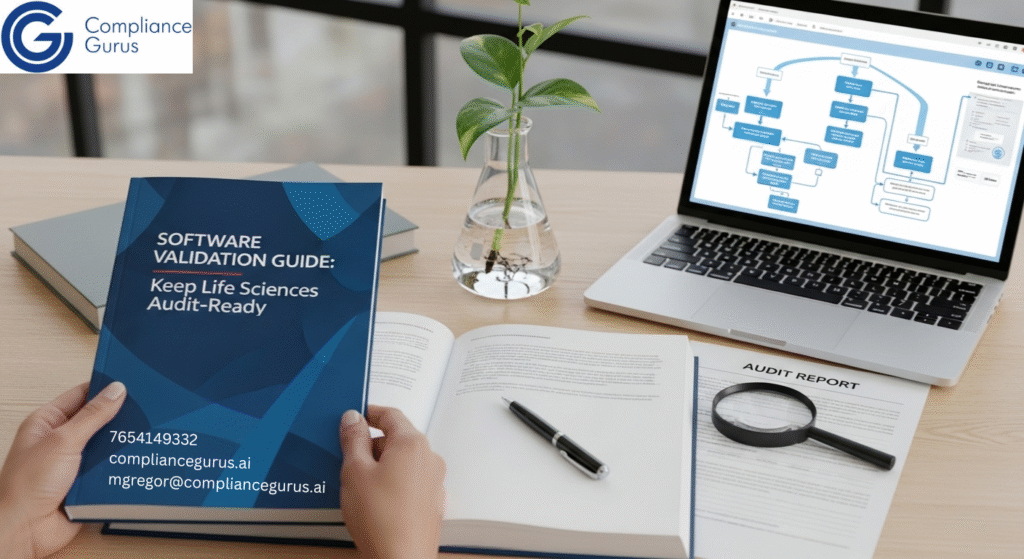The life sciences field relies on data integrity in order to build trust. Quality data equals quality products, sound business choices, and the ability to fulfill the demanding FDA regulations. Still, there are several steps that are overlooked by many companies when working with their data. This creates risks, particularly when the FDA conducts inspections.
Simply put, the following seven most frequent data integrity errors life sciences companies commit, and how to resolve them to keep your company safe, compliant, and strong.
What Is Data Integrity and Why It Matters?
Data integrity means your data is accurate, complete, consistent, and secure. The FDA looks for data that meets specific rules summarized in ALCOA+ principles: Attributable, Legible, Contemporaneous, Original, Accurate, plus Completeness and Consistency.
Strong data integrity helps teams trust their information. It protects the company from regulatory trouble and keeps products safe for patients.
1. Not Following Basic Data Integrity Rules
Some companies treat data just like numbers on a spreadsheet without thinking about its quality. This causes mistakes, lost records, or tampered info.
Fix it: Build data-handling practices around ALCOA+ rules. Use properly tested systems and follow clear workflows. Make sure your staff knows why data integrity is important and how to protect it.
2. Skipping Proper Software Validation
Software helps run many processes, but if it is not checked and validated, it may give wrong results or fail audits.
Fix it: Use a clear process for how to validate software for FDA compliance. Show your software works as it should under all expected conditions. The move-on consulting system can guide you through risk-based validation steps to avoid extra paperwork yet meet FDA needs.
Compliance Gurus offers expert help in validating software with quality assurance in pharma software to make sure your tools are reliable.
3. Not Checking Risks in Data Handling
Every data process has different risks. Ignoring those risks means you may miss important weak points.
Fix it: Assess data risks regularly. Focus your efforts on the areas with the biggest impact on product safety and quality. A smart risk-based approach helps save time and resources while staying secure.
4. Missing or Bad Documentation and Audit Trails
The FDA requires clear records showing who did what and when. Without complete audit trails, your company looks careless or worse.
Fix it: Use systems that automatically track all important actions and keep audit information safe from tampering. Make sure documentation is easy to understand and stored properly. Train your team to keep good records every time.
5. Not Consistently Using Data Integrity Tools
A great tool only helps if it is used everywhere it should be. Some companies add software or processes but use them poorly or unevenly.
Fix it: Treat your data integrity tools as a company priority. Make sure all teams understand how to use them correctly. Regularly check and update the programs across your business.
6. Waiting to Prepare for FDA Inspections
Some companies only start worrying about data integrity when an FDA visit is near. This last-minute rush can’t cover all gaps.
Fix it: Practice continuous compliance every day. Conduct regular internal checks, mock inspections, and fix problems as soon as they arise. This keeps you ready all the time and lowers the risk of surprises.
Compliance Gurus provides expert compliance audits and FDA remediation services to help companies keep ahead of inspection requirements.
7. Forgetting the Human Side of Data Integrity
Good data needs people who understand its value. Without proper training and a culture that cares about quality, mistakes happen.
Fix it: Create ongoing training for all employees, so they know their role in keeping data safe. Encourage a culture of responsibility and quality, where everyone feels part of the solution.
How Strong Data Integrity Helps Your Business Grow?
Data integrity is not just a regulation. It supports smarter business decisions and helps your company adapt fast in a changing market. When your data is solid, you avoid costly rework, save time, and improve trust with customers and regulators.
By focusing on life sciences IT compliance and innovating solutions for business growth, companies create systems that not only meet requirements but also help move the business forward.
In Sum – Building a Rock-Solid Data Integrity Program
- Use ALCOA+ as your guide for data quality.
- Validate your software with care using modern methods.
- Focus efforts on high-risk areas with targeted risk assessments.
- Keep complete and secure records with automatic audit trails.
- Consistently use data integrity solutions across your company.
- Prepare early and often for FDA inspections.
- Train and empower your people to prioritize data integrity.
Doing these things helps you protect your company, your products, and your reputation.
Final Words
At Compliance Gurus, we use our move-on consulting system to help companies build and maintain solid data integrity programs. Our team has years of experience in quality assurance in pharma software and regulatory compliance.
If the idea of preparing for FDA inspections feels tough, we are here to guide you. Our services range from data integrity assessments, CSV and CSA validations, to audits and remediation plans.
This approach keeps your company ready for FDA inspections and helps build a culture of trust and quality that drives your business ahead.
If you want to learn more about how to protect your company with the right tools and strategies, contact Compliance Gurus now. We offer the expertise to make compliance smooth and effective.
FAQs
1. What exactly does validating software for FDA compliance mean, and why does it feel so complicated?
It means proving your computer systems do what they are supposed to – every time – while meeting FDA standards. It can seem complex because you document every step carefully. Using a risk-based and streamlined validation approach like the move-on consulting system makes the process far easier and less time-consuming.
2. We have powerful tools to protect data, so why do data integrity problems still happen?
Even the best tools fail if teams don’t use them fully or consistently. Data integrity needs to be part of daily routines and company culture, not just a checklist. That’s why training and clear communication across all staff are so important.
3. What’s the best way to prepare my company for FDA audits so we avoid surprises?
Keep up with continuous compliance activities like regular internal audits, fixing issues promptly, and training your staff well. Don’t wait for the audit notice – getting ready every day cuts stress and risk.







